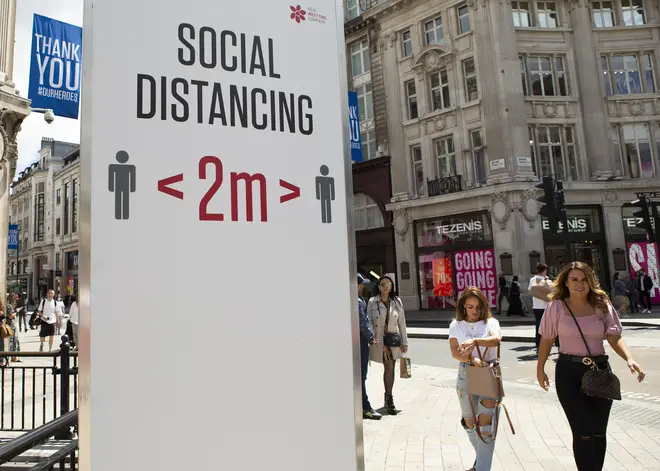
Clive Bull 1am - 4am
17 July 2020, 13:27

All you need to know from the July 17 Covid-19 briefing
Boris Johnson has announced another relaxing of the coronavirus lockdown measures, with “remaining leisure settings” and beauticians able to reopen from August 1.
But nightclubs and soft play areas will “sadly” remain closed for now, the Prime Minister said on Friday.
He also announced local authorities will have new powers to close down smaller areas if Covid cases spike.
But what did the PM say and how will it affect the public?
The Prime Minister said from August 1, “most remaining leisure settings, namely bowling, skating rings, casinos and we will enable close contact services, beauticians to resume.”
Indoor live performances will restart, subject to successful pilots, and there will also be trials in larger venues with a “view to a wider reopening in the autumn.”
Wedding receptions for up to 30 people will also be permitted.

The Prime Minister said it was not for the Government to tell employers if staff should return to their workplaces.
It comes after chief scientific adviser Sir Patrick Vallance said on Thursday there was no need to change the "work-from-home, if you can" advice.
He said: "I totally agree with Patrick Vallance on what he is saying.
"It is not for Government to decide how employers should run their companies and whether they want their work forces in the office or not - that is for companies.
"What we're saying now is that if employers think it would be better and more productive for their employees to come into the office and they can work in a safe way, in a Covid-secure way in the office, then there should be discussions between employers and employees and people should take a decision.
"What we're saying is we want to encourage people that if it is safe to come into work, provided employers have done the work they should have done to make their work places Covid-secure as so many business up and down the country have already done.
"That's what we want to see from August 1.”

Boris Johnson announces changes in working from home advice from August
In the new roadmap for relaxing lockdown in England, the Government have suggested the need for social distancing could be possible by “November at the earliest” if “prevalence falls very significantly.”
Face coverings and plastic screens would still remain in shops though.
They also said this would “be contingent on a number of factors, including consideration of the specific challenges as we move into winter.”
For 3 weeks, the number of new cases identified through testing each day has been below 1,000.
The latest SAGE advice is that, across the UK, the R rate remains between 0.7 and 0.9.
SAGE also assess that the number of infections is shrinking by between 5 and 1 per cent every day.
The number of patients newly admitted to hospital with coronavirus each day, and the number of coronavirus patients in mechanical ventilation beds, have both fallen by more than 90 per cent from their peak in early April.

Boris Johnson: Local authorities will get more powers to bring in lockdowns
From tomorrow, local authorities will have new powers in their areas to close specific premises, shut public outdoor spaces, and cancel events.
The Government will also be able to intervene more easily, with ministers able to close whole sectors or types of premises in an area, introduce local “stay at home” orders, prevent people entering or leaving defined areas, reduce the maximum size of gatherings beyond national rules, or restrict transport systems serving local areas.
Mr Johnson said: “These powers will enable local authorities to act more quickly in response to outbreaks, where speed is paramount.
“Action by local councils will not always be sufficient. So next week we will publish draft regulations which clearly set out how central government can intervene more effectively at a local level.”
He added: “I know that it will be hard going for people affected by these local measures. It isn’t easy, and for some it may seem unjust that people just a short distance away can live their lives closer to normal.
“But it has to be right that we take local action in response to local outbreaks – there is no point shutting down a city in one part of the country to contain an outbreak in another part of the country.”